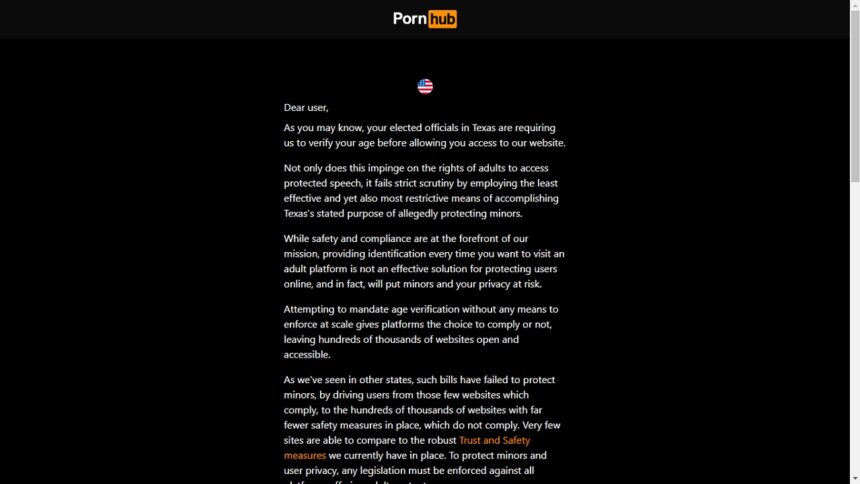In a significant ruling on Tuesday, the US Supreme Court declined to block a Texas law that mandates age verification for users accessing po_nographic websites. The decision, issued without comment or dissent, allows Texas to continue enforcing the controversial measure, which has already led to the shutdown of major adult content platform Po__hub in the state.
Industry Challenge Rejected
The Supreme Court’s move comes as a blow to the adult entertainment industry, which had challenged the law on First Amendment grounds.
The Free Speech Coalition, a trade association representing adult content creators and distributors, argued that the age verification requirement posed privacy and security risks while unconstitutionally burdening free speech.
Despite these concerns, the high court chose not to intervene, leaving in place a 5th US Circuit Court of Appeals ruling that cited Texas’ “legitimate interest in preventing minors’ access to por__graphy“. The industry now faces the challenge of complying with the law or risking penalties.
Protecting Minors vs. Adult Rights
At the heart of the debate lies the balance between safeguarding children from harmful content and preserving adults’ constitutional rights.
Proponents argue that age verification is necessary to prevent minors from easily accessing adult material online.
However, critics contend that such measures are not only ineffective but also infringe upon the privacy and free speech rights of adult users.
They point out that determined minors can still circumvent age checks using VPNs or other tools, while law-abiding adults are forced to hand over sensitive personal information.
Implications and Uncertainties
The Supreme Court’s decision has far-reaching implications for both the adult entertainment industry and online privacy. As more states consider similar laws, concerns grow over the security of user data collected for age verification purposes.
Experts warn that centralized databases linking personal identities to adult content consumption could become prime targets for hackers, exposing millions to potential harassment, blackmail, and exploitation. The lack of universally accepted age verification systems further complicates matters.
As the future of online adult content access in the US remains uncertain, the debate over balancing child protection with constitutional rights is set to continue. For now, the Texas law stands as a contentious precedent in the ongoing struggle to regulate the digital realm.
Check Also: Migrant Crossings Shift from Texas to Arizona and California





